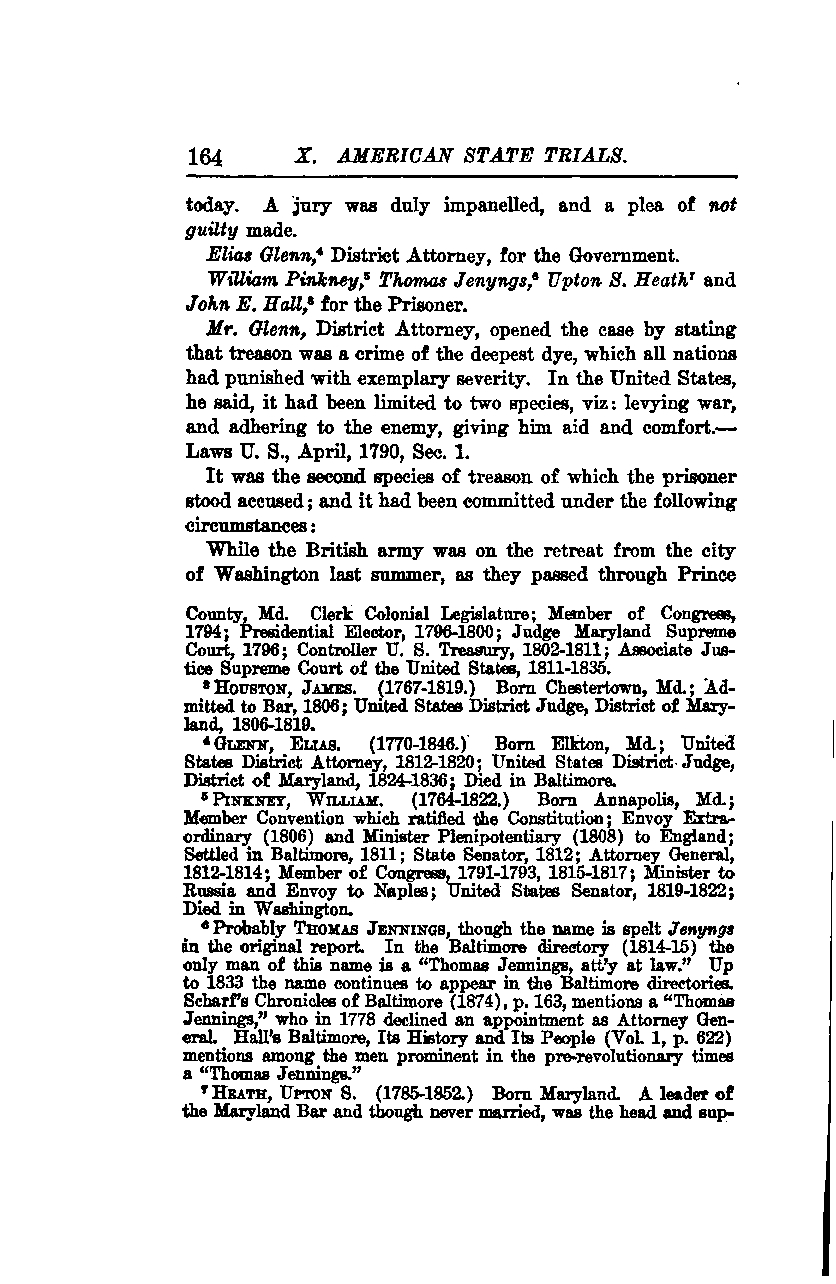
Here is the translated text as follows:
164 X, AMERICAN STATE TRIALS.
Today, a jury was duly impaneled, and a plea of not guilty was made.
Elias Glenn, District Attorney, for the Government.
William Pinkney, Thomas Jennings, Upton S. Heath, and John E. Hall for the Prisoner.
Mr. Glenn, the District Attorney, opened the case by stating that treason was a crime of the deepest dye, which all nations had punished with exemplary severity. In the United States, he said, it had been limited to two species, namely: levying war, and adhering to the enemy, giving him aid and comfort (Laws U.S., April 1790, Sec. 1).
It was the second species of treason of which the prisoner stood accused, and it had been committed under the following circumstances:
While the British army was on the retreat from the city of Washington last summer, as they passed through Prince George's County, Maryland.
---
Biographical Notes:
**Elias Glenn (1767-1819):** Born in Chestertown, Maryland; admitted to the Bar in 1806; United States District Judge, District of Maryland, 1806-1819.
**Thomas Jennings (1770-1846):** Born in Elkton, Maryland; United States District Attorney, 1812-1820; United States District Judge, District of Maryland, 1824-1836; died in Baltimore.
**William Pinkney (1764-1822):** Born in Annapolis, Maryland; member of the convention which ratified the Constitution; Envoy Ordinary (1806) and Minister Plenipotentiary (1808) to England; settled in Baltimore, 1811; State Senator, 1812; Attorney General, 1811-1814; Member of Congress, 1791-1793, 1815-1817; Minister to Russia and Envoy to Naples; United States Senator, 1819-1822; died in Washington.
**Note on Thomas Jennings:** The name is spelled "Jenyngs" in the original report. In the Baltimore directory (1814-15), the only man of this name is a "Thomas Jennings, att'y at law." Up to 1833, the name continues to appear in the Baltimore directories. Scharf's Chronicles of Baltimore (1874), p. 163, mentions a "Thomas Jennings," who in 1778 declined an appointment as Attorney General. Hall's Baltimore, Its History and Its People (Vol. 1, p. 622) mentions among the men prominent in the pre-revolutionary times a "Thomas Jennings."
**Upton S. Heath (1785-1852):** Born in Maryland. A leader of the Maryland Bar and, though never married, was the head and supporter of a large family.
---